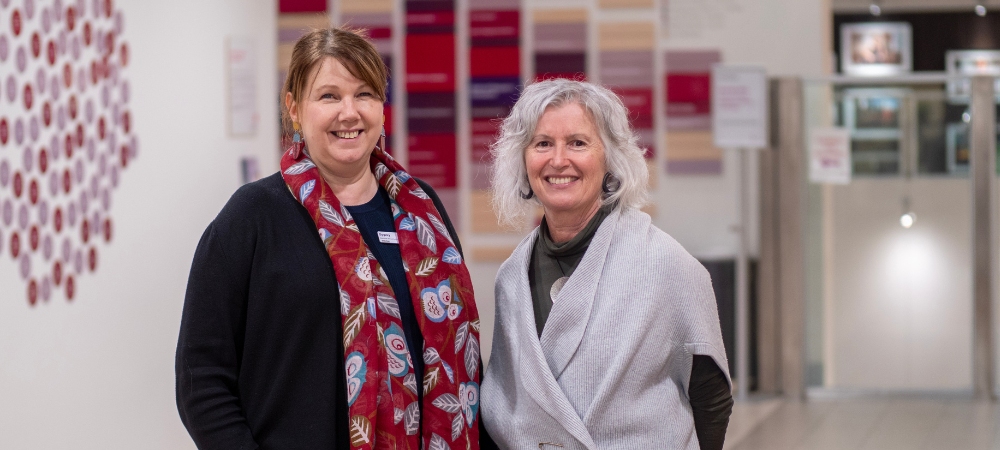
Pregnancy is often portrayed as a universally positive experience, but this is not the case for every woman. The Women’s NEST program provides a safe space for women to talk about their experience of pregnancy – the good and the difficult parts.
Christina, a Melbourne mum of three, has benefited from being part of the program. Christina has worked in mental health research for the last 20 years. She is very aware of her own personal vulnerability for depression and anxiety.
In her early twenties, Christina experienced panic attacks following a stressful life event. After giving birth to her second daughter, she developed symptoms of postnatal depression.
“I wasn't clinically diagnosed with postnatal depression but I experienced symptoms,” she remembers.
With baby number three on the way, life threw a few curve balls at Christina.
Juggling a young family, managing a highly demanding full-time job and dealing with significant personal stress, she was at risk of developing postnatal depression again. She was also diagnosed and treated for gestational hypertension and was monitored closely to prevent development of preeclampsia.
Christina knew these stressors were the perfect mix to cook up a storm – and to potentially lead to postnatal depression.
So, she opened up to her midwives during antenatal care. They connected her with the Women’s clinical psychologist, Dr Gypsy O’Dea.

“Having negative emotions or uncertainty in pregnancy is very common, but is also stigmatised, so often women don’t talk about it,” Dr O’Dea says. “They may feel ashamed or wonder if there is something wrong with them.”.
This is why the NEST program was developed three years ago. NEST stands for Nurturing Emotional Support in Transition to motherhood.
Julienne Kinna is a senior clinical psychologist at the Women’s and runs the online support group, which women take part in for six sessions.
“The program is offered to patients of the Women’s Mental Health Service who are experiencing anxiety or depression,” Julienne says.
“It focuses on managing symptoms of anxiety and building self-compassion and connection with baby.
“The NEST program also provides a very special opportunity to connect with others who are also struggling in pregnancy.”
Dr O’Dea is proud that the program works and is helping women.
“We regularly collect feedback from participants about their experience of the program, and 97 per cent of participants say NEST supported their mental health to improve.”
Dr O’Dea adds that many women use the skills and strategies they learnt in the program well beyond pregnancy.
“NEST brought together a group of expectant mothers with different backgrounds. I felt safe to open up and share my personal experience,” Christina says.
“NEST offered a safe and confidential space to engage with trusted professionals and, more importantly, to give myself time and space to focus on my own needs. It was a great opportunity to receive support from the group facilitators, to speak and to be heard.”
Christina gave birth to her third baby, a girl, eight weeks ago.
She’s back at home and bonding well with her little girl.
“During pregnancy, I knew that I needed to speak with a trusted professional about my stressful personal experiences. I did that because I did not want to experience postnatal depression again.
“I knew that I was vulnerable. And yes, NEST has helped me reach this goal.”
To learn more about the NEST program, connect with the Women’s Mental Health Service.